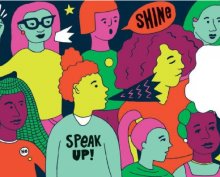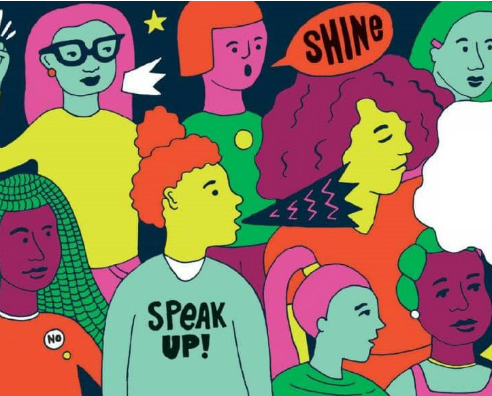
Grace Gaffey and Meranie Kairu (Lower Sixth)
On Monday 7th December, the African and Caribbean Society (ACS) attended an online talk hosted by the Eckersley Society at Bedford School on the topic, How do we talk about race? with Dr Janice Johnson.
Dr Janice Johnson is an assistant professor in Human Resource Management at Coventry University. She was a speaker on Race Conversations at a regional HR forum in November and was recently interviewed by Diversity Q Magazine.
Dr Johnson provided an extremely insightful discussion into how we can effectively talk to people about race. Dr Johnson talked about the best way to approach conversations about race and support people in these discussions. In addition, she urged attendees to acknowledge the strength in their personal platforms and think critically about how we can use them to make a positive change in the world. Dr Johnson’s words prompted very engaging discussions in the chat with students and staff from Bedford School, which all of us learnt a lot from.
Dr Johnson explained that the journey to becoming an anti-racist includes three zones: fear, learning and growth. In the fear zone, people deny that racism is a problem and avoid conversations around it. A teacher from Bedford School commented that people may be “aware of their room for growth and unconscious biases”, but because they have not addressed these, the key to reaching the learning zone, they feel uncomfortable having these conversations.
One of the ACS’ main goals is to encourage students to move from the fear zone to the learning and growth zones. Last week we held an open meeting where girls safely shared their experiences with racism. All girls engaged in a two-way process of learning and sharing where, above all, everyone was listened to and treated with respect. In addition, we set up debates for girls to engage in during form time and hear their peers’ views.
Activities like these advance students towards the learning zone. Here people recognise racism as an issue and actively try to educate and understand structural racism and privilege. Finally, the growth zone is where a person can sit with their discomfort about race, and speak out against racism and educate others. Growth and cultural change cannot be achieved without having uncomfortable conversations. Thus, it is vital to persevere as to be progressive we must be challenged.





















